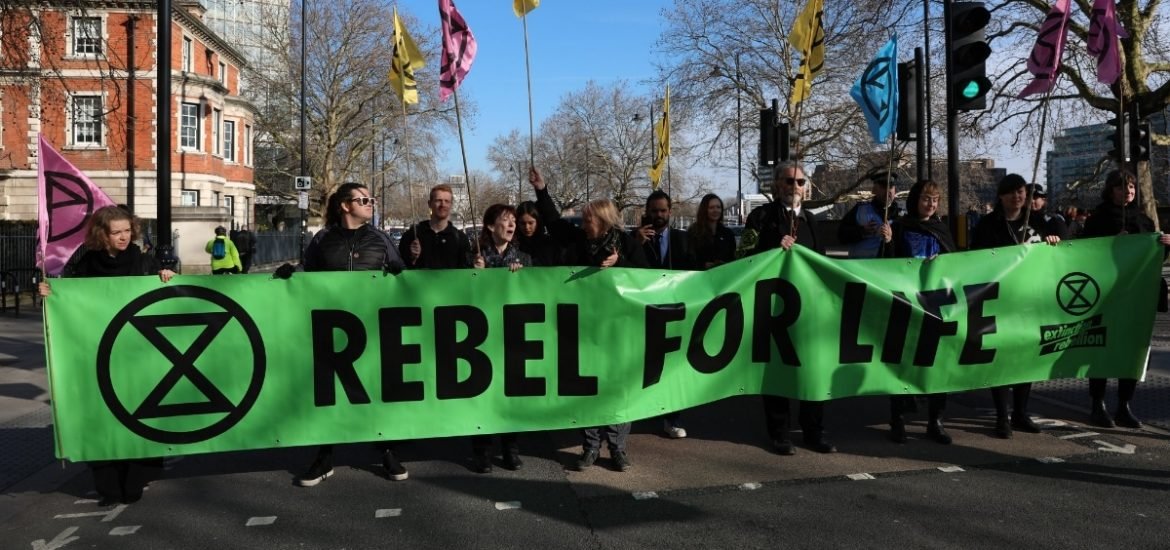
Protesters led by Extinction Rebellion disrupted the third day of London Fashion Week, Sunday 17 February, to challenge a fashion industry which they believe is promoting so-called “fast fashion” characterised by a trend of excessive consumption and throwaway culture.
The international social movement is a non-violent organisation hoping to promote radical changes to avert climate breakdown, prevent biodiversity loss, and reduce the risk of human extinction and ecological collapse. The group had already met with the British Fashion Council (BFC) early in the week to inform the industry body of its intentions to “swarm” the event but also to discuss how the industry body could use its sway to stop overconsumption and to urge the BFC declare a climate emergency.
In a statement following the meeting, the group wrote, “right now people are flying in from across the world to celebrate an industry that has fuelled and applauded our high consumption lifestyles. We will swarm, using the platform of Fashion Week to raise the question (a question we need to be asking ourselves and all who our lives touch, all the time): what more can we do to tell the truth about the climate and ecological collapse and act on that truth?”
Protestors ― dressed in black to mourn lives destroyed by environmental and with placards reading “Climate change = mass murder” and similar slogans ― started outside Victoria Beckham’s show at Tate Britain and formed human blockades on roads around the event venues. Britons buy more new clothes than any other country in Europe and advocates of more sustainable and environmentally friendly practices are hoping that changes in London will prompt action in the global community.
The fashion industry is a perfect example of “unsustainable growth.” Global clothing consumption has doubled in the past 15 years and garments are being worn 36 per cent less often. Moreover, the textile industry produces 1.2 billion tonnes of greenhouse gases per annum. The EU alone generates 16 million tonnes of textile waste per year, according to the European Commission. Most of this ends up in landfills or incinerators. Projects, such as RESYNTEX, aim to transform some of this waste into secondary raw materials, however, further efforts like this will be required to fully realise a circular economy.
Fast fashion brands like Primark, Zara, and H&M are having a huge impact on the environment, not to mention the questionable worker conditions ― particularly as garments are being produced so cheaply and quickly in response to fast fashion trends. Sadly, the multibillion-pound fashion industry continues to waste valuable resources and contribute to climate change. And while most people are becoming more environmentally conscious, sustainable fashion brands and recycled clothing are simply not affordable for many.
The fashion industry is on the cusp of change as ethical and environmental concerns become more mainstream and “fashionable.” In the words of Nuala Gathercole Lam, “We ask the fashion industry, who do you want to listen to, the youth and the future, or the words of our current Prime Minister, whose Government is criminally neglecting the UK’s agreed responsibilities under the Paris agreement in the face of the ecological emergency?”